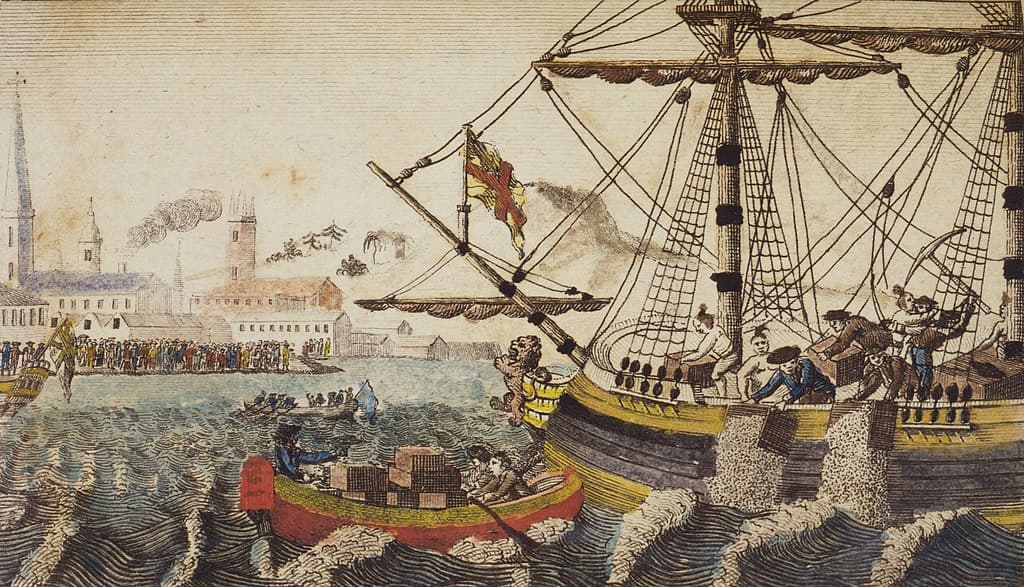The Boston Tea Party is one of the most well-known events in American history. It occurred on December 16, 1773, when a group of colonists in Boston, Massachusetts, threw 342 chests of tea belonging to the British East India Company into the Boston Harbor as a protest against British taxes and policies. This event was a significant catalyst for the American Revolution and marked a turning point in the relationship between Britain and its American colonies. In this article, we will delve into the historical background, causes, events, and consequences of the Boston Tea Party.
Background of the Boston Tea Party
To understand the significance of the Boston Tea Party, it is essential to know the historical background of the American colonies and their relationship with Britain. In the early 1700s, Britain began to impose a series of laws and taxes on its American colonies. These measures included the Navigation Acts, which restricted trade between the colonies and other countries, and the Stamp Act, which required colonists to pay a tax on all printed materials. These actions provoked widespread resentment and resistance among the colonists, who believed that they were being treated unfairly by the British government.
Causes of the Boston Tea Party
In the 1760s and 1770s, tensions between Britain and its American colonies escalated. The British government imposed a series of new taxes, including the Townshend Acts, which placed duties on imported goods such as paper, glass, and tea. The colonists saw these taxes as a violation of their rights as British citizens, and they launched a boycott of British goods in protest. In 1773, the British East India Company was facing financial difficulties and had a surplus of tea that it was unable to sell. The British government passed the Tea Act, which allowed the company to sell its tea directly to the colonies at a lower price than its competitors. This action was seen as an attempt to undermine the colonial boycott and to give the East India Company a monopoly on the tea trade in America.
Events
On December 16, 1773, a group of about 60 colonists disguised as Native Americans boarded three British ships – the Dartmouth, the Eleanor, and the Beaver – that were anchored in Boston Harbor. They spent the next three hours throwing 342 chests of tea overboard, destroying the cargo worth around 9,659 British pounds (equivalent to approximately $1.7 million in today’s currency). The participants of the Boston Tea Party made a deliberate effort not to damage the ships or harm any of the crew members. The event was a peaceful protest against British policies and taxes, and it marked a turning point in the relationship between Britain and its American colonies.
Consequences of the Boston Tea Party
The British government responded to the Boston Tea Party with a series of harsh measures. They passed the Coercive Acts, which were designed to punish Massachusetts for the tea party and to reassert British control over the colonies. The acts closed Boston Harbor until the colonists paid for the tea that was destroyed and imposed other restrictions on the colonists’ political and economic activities. These actions further inflamed tensions between Britain and the colonies, and they helped to unite the colonists in their opposition to British rule. In September 1774, the First Continental Congress met in Philadelphia, and delegates from 12 of the 13 colonies (Georgia did not attend) discussed their grievances against the British government and formed a united front. This event was a significant step towards the American Revolution, which began in April 1775 with the Battles of Lexington and Concord.
Conclusion
The Boston Tea Party was a significant event in American history that marked a turning point in the relationship between Britain and its American colonies. It was a peaceful act of protest that was motivated by a deep sense of resentment and opposition to British policies and taxes. The Boston Tea Party contributed to the growing tension between Britain and the colonies and played a crucial role in the outbreak of the American Revolution. The event continues to be celebrated today as a symbol of American independence and as a reminder of the power of peaceful protest in the face of oppression.



 For all latest articles, follow on Google News
For all latest articles, follow on Google News
Dear bishleshon.com admin, Your posts are always thought-provoking and inspiring.